Coronavirus: Teenagers most likely to have been furloughed
- Published
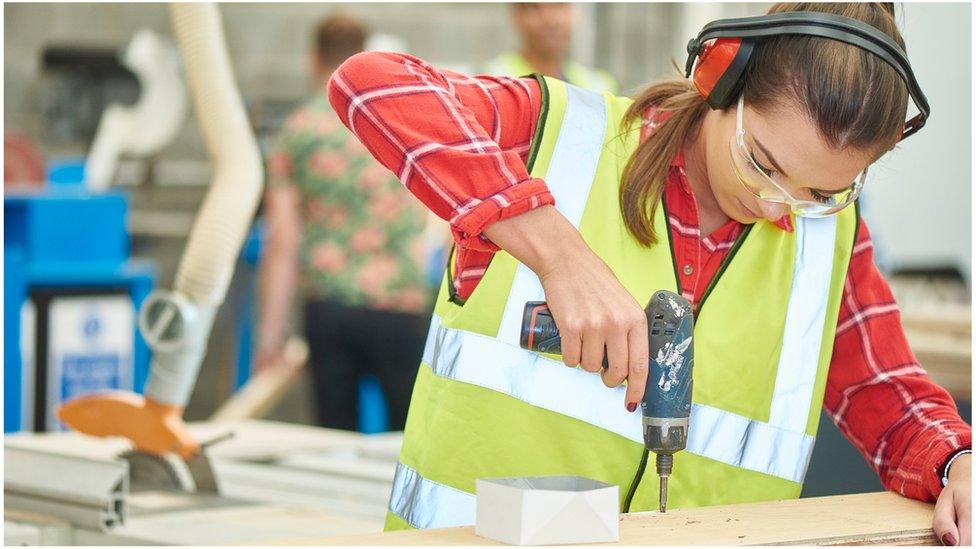
Seventeen-year-old women are most likely to have been put on furlough during the coronavirus crisis, official data shows.
Some 61% of jobs done by these young women had wages paid by the state, HM Revenue and Customs (HMRC) said.
Young men of the same age were also more likely than not to have been furloughed, hitting 58% of their jobs.
Men aged in their 40s and women aged 41 to 58 were least likely to have been put on the scheme.
Anne Willmot, age campaign director at Business in the Community, said: "Young people are being locked out of employment at the start of their careers - a key time for them to gain experience, learning and development in the workplace."
More than nine million workers who are unable to do their job because of the coronavirus outbreak have had their wages paid by the government.
The furlough scheme was designed to help people put on leave because of the outbreak, and prevent mass redundancies. Firms start paying towards the scheme from August. It will close in October.
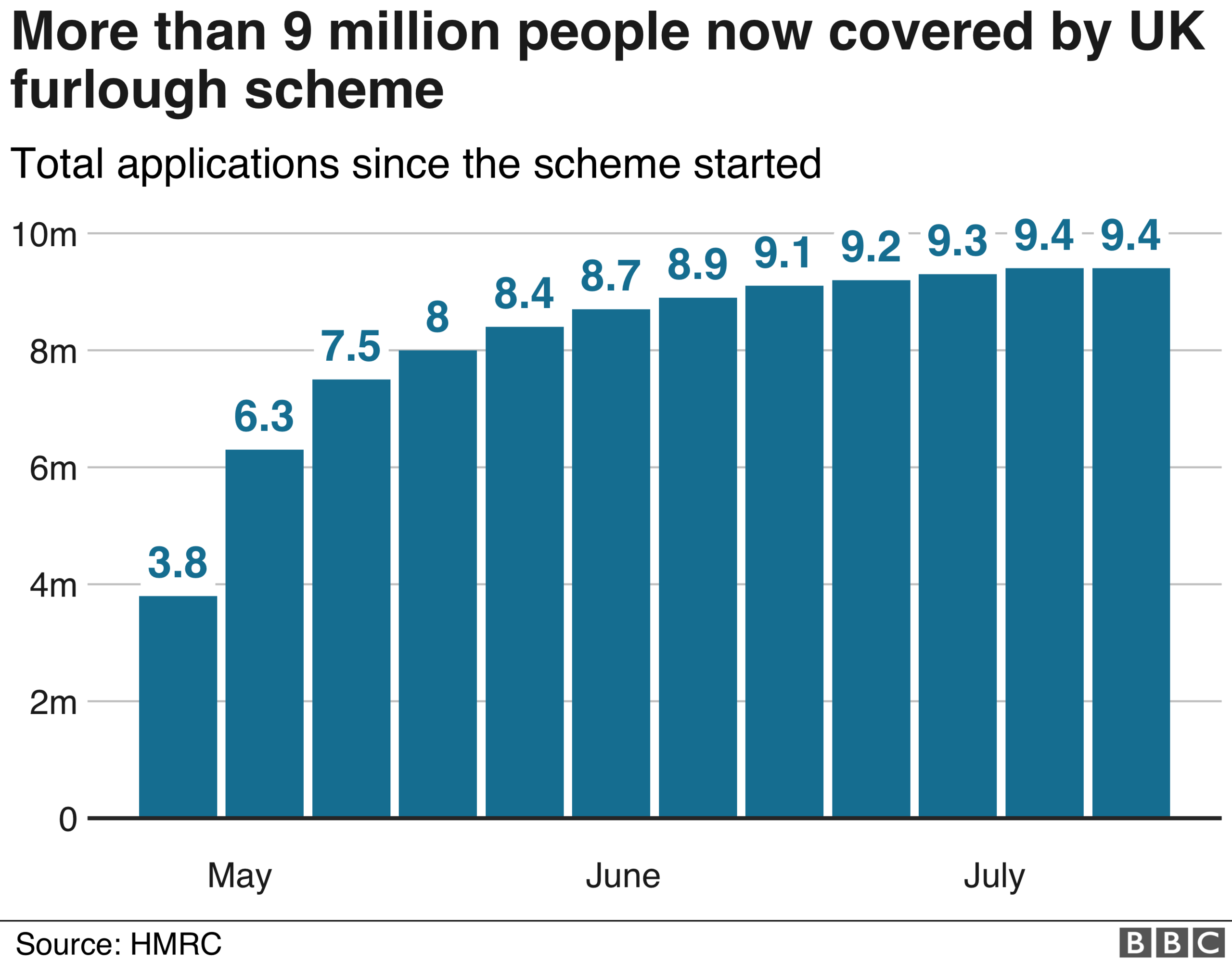
Detailed data has been published by HMRC, external which shows where the scheme was used until the end of June, by which point it had cost the Treasury £26.5bn.
People working for smaller companies are more likely to have been furloughed than those employed by bigger businesses.
Some 57% of jobs at businesses with between five and nine employees had been furloughed, compared with 19% at companies with 250 or more employees.
A handful of larger companies have been repaying furlough money claimed from the Treasury.
By sector, those working in accommodation and food services had the highest proportion of employers furloughing at least some staff (87%) and the highest proportion of total employments furloughed at 73%.
The local authority with the highest proportion of jobs furloughed was South Lakeland at 40% and the lowest was Boston in Lincolnshire at 20%.
Support for the self-employed
Three-quarters of those eligible for support grants to help the self-employed through the coronavirus crisis had made a claim by the end of June, further data from HMRC shows, external.
Women were less likely to have made a claim, with 70% having done so, compared to 78% of men who were eligible and had claimed a grant.
The amount paid depends on previous income from their trade, and the figures show that the average claim for women was also lower, at £2,300, compared to the average claim for men of £3,200.
The highest proportion of claims by profession was in the construction sector.

Have you been affected by the issues raised in this story? Share your experiences by emailing haveyoursay@bbc.co.uk, external.
Please include a contact number if you are willing to speak to a BBC journalist.
WhatsApp: +44 7756 165803
Tweet: @BBC_HaveYourSay, external
Please read our terms & conditions and privacy policy
- Published30 September 2021
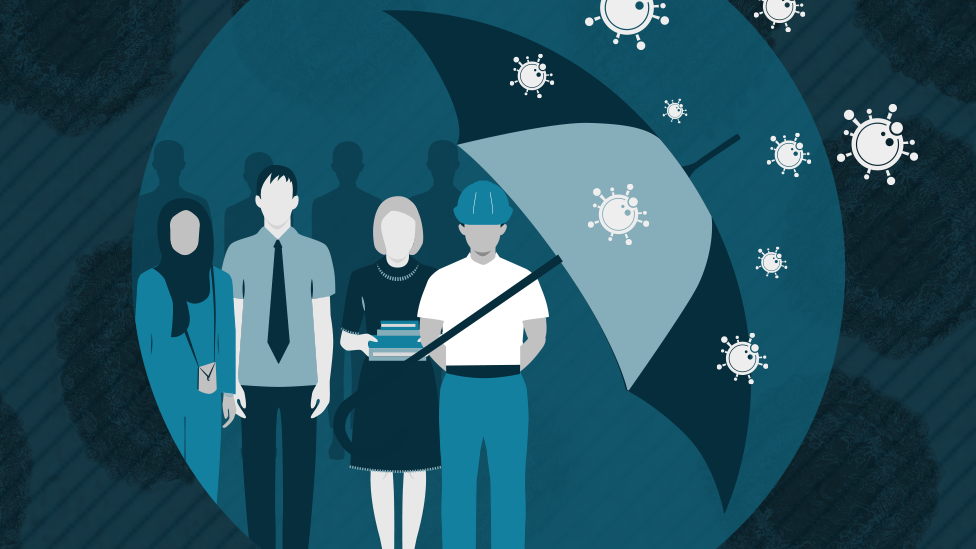
- Published14 July 2020
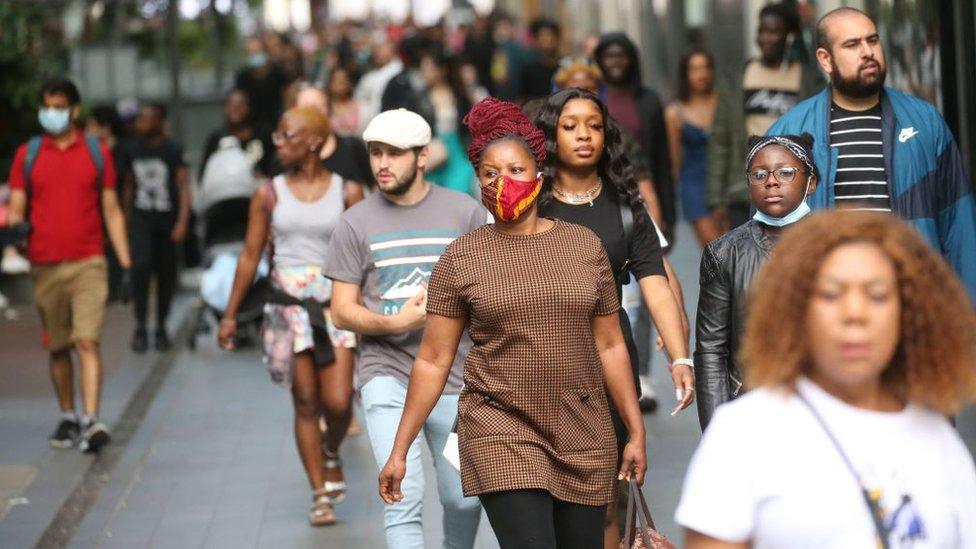
- Published14 July 2020
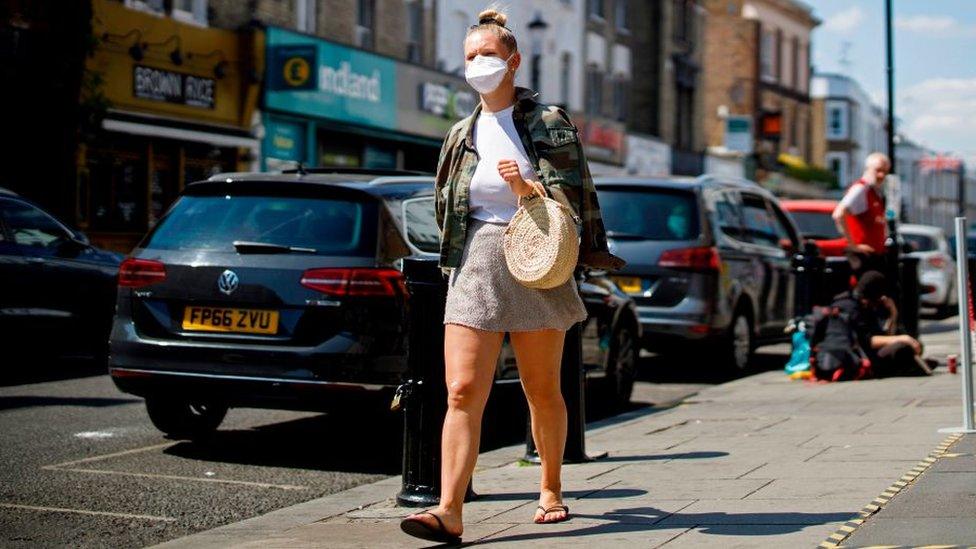
- Published8 May 2020
